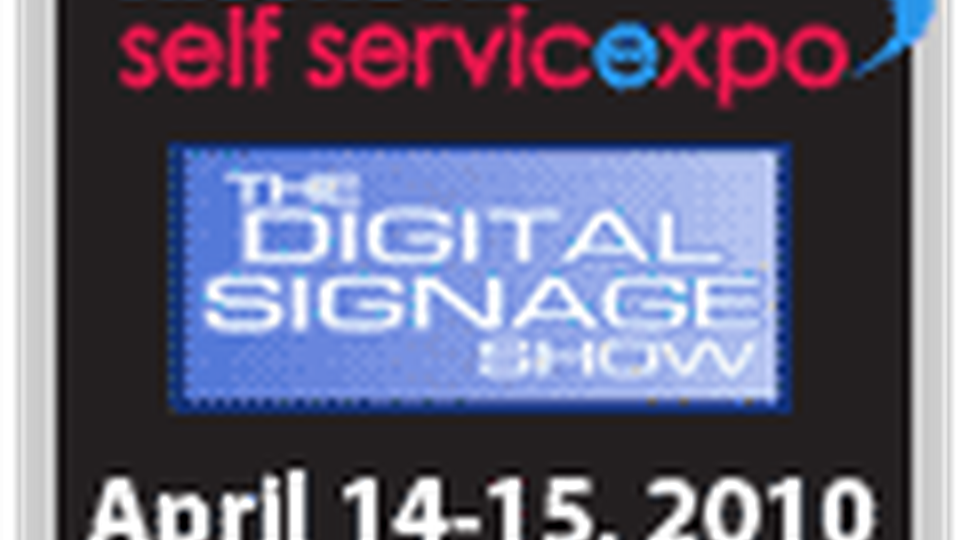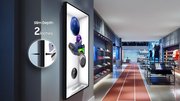Article
KioskCom/DSS: Win hearts with digital signage, minds will follow
Brainjuicer senior vice president Bill Ratcliffe told a packed room about content strategies for winning hearts at the first keynote at this year's KioskCom and The Digital Signage Show.

April 13, 2010
You see a gorilla first, and you hear the strains of Phil Collins' "In the Air Tonight," and you think what is this ad all about?
The viewpoint keeps pulling back, and you see more of the gorilla, just sitting there breathing, until – right before the famous drum solo starts – you see the gorilla is sitting at a drum kit, just as it starts playing the drums right along with the song.
What?
The ad is funny; it makes most people happy – and the fact that it has nothing to do with the product being sold (chocolate, by the way) really doesn't matter, according to Brainjuicer ad agency senior vice president Bill Ratcliffe, who started out as a psychologist.
For the first keynote address at this year's KioskCom Self Service Expo and The Digital Signage Show, "Creating Outstanding Experiences and Content: Engage Customers by Winning Their Hearts," Ratcliffe said the way to engage customers and achieve the ROI of your medium, be it television or digital signage, is to win the hearts of people, not their minds.
"Emotions drive our motivations and our decisions," Ratcliffe said, but our measurement tools tend to reflect people's rational processes, which are frequently much more the byproduct of emotional processes than previously realized. "We think less than we think."
Brainjuicer has found that campaigns successfully incorporating emotional appeals are more effective and more profitable than rational campaigns, Ratcliffe says, even when the product being sold is more technological or rational in nature. Brand awareness is easy to measure, he says, but it doesn't increase market share as much as brand fame.
And people just know when an ad or a brand connects with them and works, he added; they don't have to think about it, they feel it. Just look at a product that's getting huge sales numbers, he says, even though most people still aren't entirely sure what it does.
"If you win hearts it'll make money," he said. "Just ask Apple."
But if it's really about winning hearts, Ratcliffe asks, how do we know that we've won them?
To that end, Brainjuicer has come up with what in hindsight looks like a ridiculously simple and obvious way of measuring people's emotional reactions to ads, using faces displaying key universal facial expressions, like happiness or contempt. By getting people to pick the face that most closely matches how they feel after seeing a spot, Brainjuicer is able to determine whether or not their ad is having the desired emotional impact, and winning hearts.
(And it's not simple of course, but the result of serious science done to determine universally recognized facial expressions, what Ratcliffe calls "the primary colors of emotion.")
Brainjuicer even incorporated this facial expression survey into a self-service kiosk at HSBC bank branches in the United Kingdom to find out how people felt about their service at the branch – which surprisingly enough correlated to an uptick in bank business, according to Ratcliffe.
Most advertising fits into readily recognizable patterns and parameters, Ratcliffe says, so even if it's technically proficient, it could wind up seeming like just another ad to viewers, one tht just blends in with all the rest.
But when advertisers, deployers, brands, etc. can find the "sweet spot" where they're engendering a happiness response in viewers, that's when they've hit the mother lode, he says.
"This (the gorilla ad) is like a Greek salad at a hamburger fest, it really stands out," he said. "It was an inter-species bonding moment brought to you by Cadbury."
And while the ad was an experience, not a sales pitch, it nevertheless resulted in a significant sales lift for the chocolate company, according to Ratcliffe.
So advertisers, brand and media deployers have a choice, he says. They can choose to do "the same old (stuff)" or "crazy new (stuff)":
"And in fact social marketing is crazy new (stuff), and digital signage is crazy new (stuff)…"
 ChatGPT
ChatGPT Grok
Grok Perplexity
Perplexity Claude
Claude






